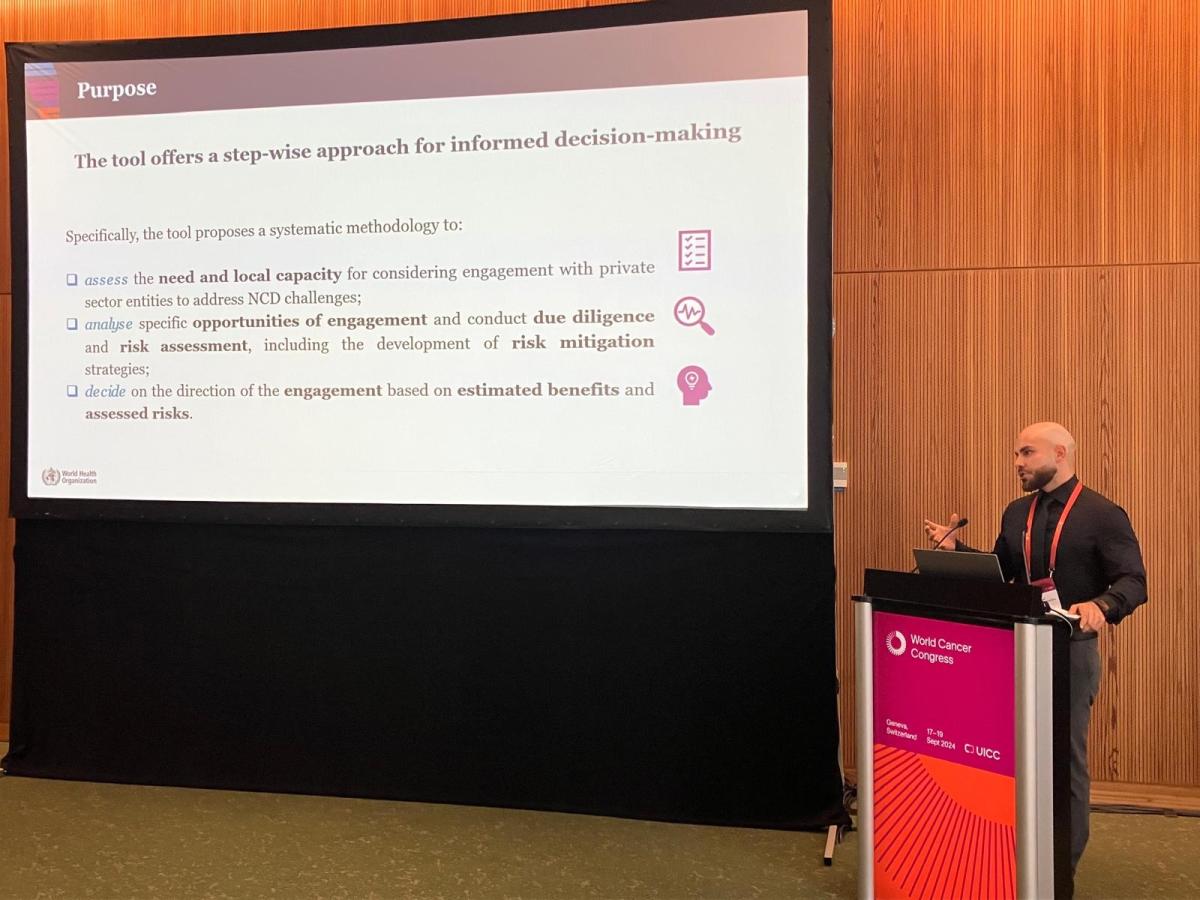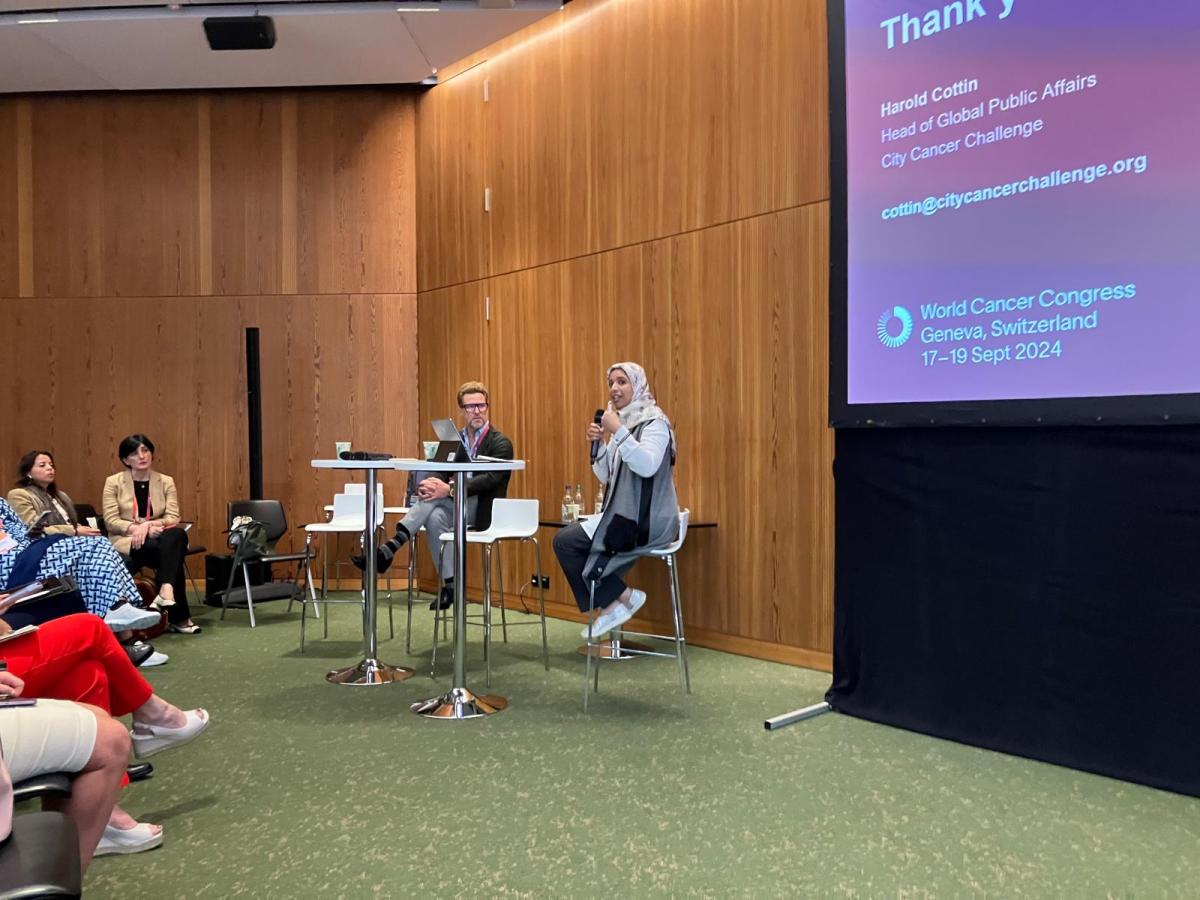Global NCD Platform
Call for proposals: Implementation research on integrated care pathways to address NCDs and mental health conditions. Incentive Grants for Young Researchers from Low- and Middle-Income Countries
19 Nov 2024
World Health Organization | 27 Sep 2024
For the 2024 World Cancer Congress, the World Health Organization and City Cancer Challenge co-designed a session focused on multistakeholder collaboration in cancer care – a key approach to tackling the rising burden of cancer and noncommunicable diseases (NCDs) in low- and middle-income countries (LMICs). More than 60 participants discussed the challenges and opportunities of public-private engagement and the meaningful engagement of people with lived experience.
The global health and equity challenges of NCDs and mental health conditions require a comprehensive and well-coordinated approach that engages actors across public and private sectors. WHO’s Action Plan (2013-2030), and its implementation roadmap emphasize the need for coordinated multisectoral and multistakeholder engagement, acknowledging the role of nongovernmental organizations – including civil society groups, individuals with lived experience, academic institutions and private sector entities.
A major challenge discussed during the session was the limited capacity of governments and health actors to identify, manage, or mitigate risks, including conflicts of interest, when engaging with the private sector to safeguard public health. Hussein Alshamali, from WHO’s Global Coordination on NCDs, presented a new practical tool developed by the World Health Organization (WHO), which guides governments in making informed decisions on potential engagements with private sector entities.
The new Decision-making tool offers health authorities, government actors and other relevant organizations a systematic methodology for assessing, analysing and reaching a decision on whether or not to engage with private sector entities to complement or enhance efforts of the public sector. Built around three principles guiding private sector engagement – sustainable and responsible practices, added value to the NCD response, and accountable and transparent governance – the tool helps user to explore potential engagements, while safeguarding public health from undue influence and conflicts of interest.

Harold Cottin of City Cancer Challenge then provided insights and first hand experiences in facilitating partnerships with the private sector from the perspective of a non-state actor through a collaboration framework that aims to build sustainable multistakeholder partnerships.
Dr. Guy Fones – the cross-cutting lead on NCDs strategy at WHO – emphasized that collaborations between the public sector, civil society and philanthropic organizations, academia and the private sector can mobilize resources, expertise, and innovations to address pressing gaps in healthcare systems. As the burden of cancer and NCDs is rising in LMICs, multistakeholder partnerships play a major role in improving access to quality cancer care.

The following panel discussion highlighted case studies of partnerships that successfully improved NCD prevention efforts, as well as the critical access to screening, diagnosis and treatment tools.

The session concluded with a powerful message from a lived experience advocate, Ms. Ikram Eseghir from Morocco. She emphasized the need for a clear vision and transparency regarding the role of people with lived experience in partnerships, ensuring that people with lived experience should be actively engaged and informed in all phases of a collaboration, from setting priorities to actively participating in the implementation, monitoring and evaluation of outcomes. For collaboration to be truly effective, open communication between all stakeholders directly supports an ethical and accountable response. While the private sector should support capacity-building programs that empower lived experience, WHO's guidance on operationalizing meaningful engagement will help Member States implement sustainable and inclusive practices.